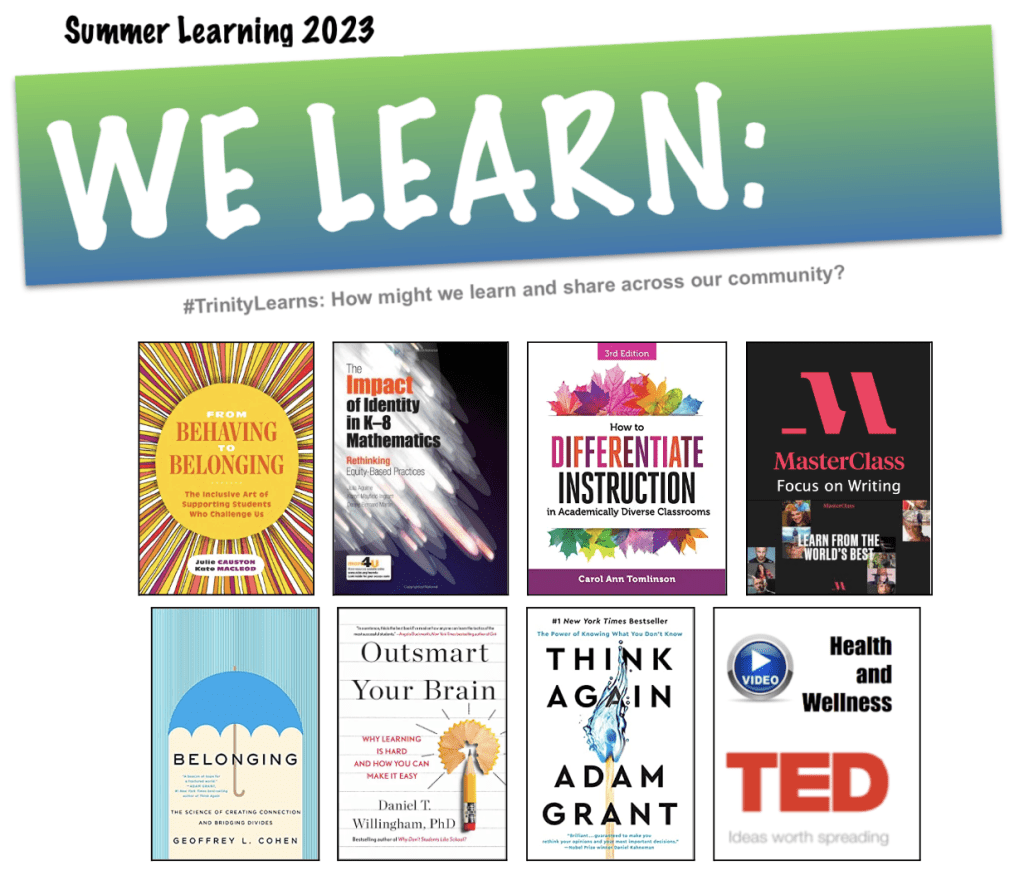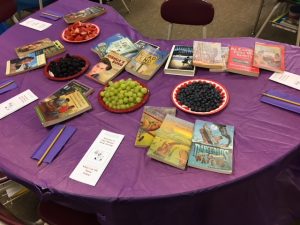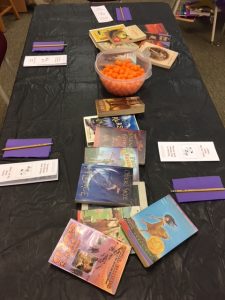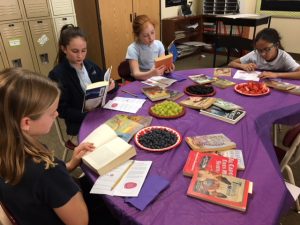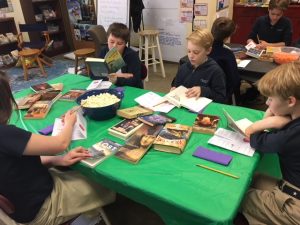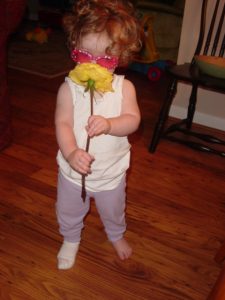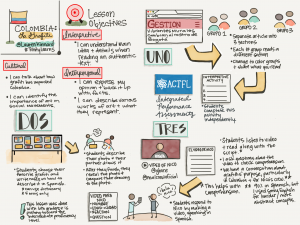Every teacher waits for that “Ah Ha” moment, where you see a student’s face light up with joy when they achieve success. In my fifteen years of teaching, I have taken countless hours of professional development, learning tips and tricks to manage a classroom that has my students engaging in meaningful conversation, deep learning, and a fun and safe learning environment. I have seen a wide variety of student behaviors from the stringent rule followers to the occasionally disruptive, to the downright rude and unapologetic student. Usually, after a few parent phone calls, emails, or conversations with the student, the behavior generally turns around, even if it is just a few days.
This year was different. I quickly learned that one student was going to be a hard nut to crack. I knew I had to make some kind of connection with him, but my bag of tricks weren’t working for him. He brought in a picture of him on a snowmobile to share with the class. I chatted with him about it and got pretty much nothing. No real excitement out of his experience. I don’t know about you, but if I had the opportunity to ride one of those, I would be sharing that experience with everyone like a child talks about Christmas morning. Ok, no big deal. Let’s try compliments. Every morning, the students write about different National Day topics ranging from National Pancake Day, National Travel Day, National Do a Grouch a Favor Day and many other interesting topics. My students love coming in each morning to see what they are writing about and receiving compliments from the class. Seeking to praise his writing, I saw nothing but silliness and goofing off. I took him out in the hall and asked him why he wasn’t following the different prompt questions in his writing. He just shrugged his shoulders and told me his writing was funny, and he wanted to make the class laugh.
During a variety of lessons in small groups, using laptops and Nearpod, and whole group instruction, this student would not take anything seriously. From the calling out inappropriate comments, teasing other students, playing with pencils and glue sticks, and drawing in his notebook, nothing was off limits. It was heartbreaking to see a child, who clearly had so much potential, act like this. He has parents who care about him and have partnered with me to create a platform for success. Calm, nurturing conversations with my student were not working at all. I have been doing this since August to no avail. It was the same old behavior, lesson after lesson, day after day, and week after week. I finally had enough.
Winter conferences were here. Going through all of my conferences and taking last minute notes of talking points I wanted to hit with parents, I came across his name. For the first time, I truly couldn’t think of many positive things to say. It was all about behavior, not taking responsibility in class, and not working to potential. Emails home had not worked, conversations weren’t working, and positive discipline had failed. Something needed to be done. There had been too much adult effort without change.
As he and Mom walked into my room for conferences, I was nervous because I knew what needed to be done. I knew he needed to hear the harsh truth, and I wouldn’t sugar coat it. It went against everything I had done in my year and a half at Trinity. As he began to speak about his strengths and what he liked at school, it was very basic. “I like PE because I’m good at it. I like Wagon Train because it’s fun.” As he spoke, I could feel my frustrations surfacing. How could this child, with fantastic potential and obvious enjoyment of our classroom, give such a blasé answer to his mom and me about school?
Finally, it was my turn to talk. I started out by telling him I appreciate his thoughts on his learning. I handed him his warm-up journal, the very same one he writes in each day when he comes into school. I opened to an already marked page. The prompt was, “If you were a bird and could fly anywhere in the world, where would you go? What would you see? How would you feel?” I asked him to start reading. “If I was a bird, I would fly to New York and fly into people’s windshields and make them crash.” Then the water works came. He couldn’t finish. I didn’t let up. I turned to another marked page and had him read. “If someone was bullying someone, I would threaten them with a toy gun and toy knife. If they kept doing it, that’s your problem.” Uncontrollable crying. I flipped to a few more pages which I already highlighted and showed his mom. She was in shock. It was now a teacher-led conference, with me placing a mirror in front of him, revealing all of his negative actions, pealing away layers that exposed the truth about his behavior. As we wrapped the conference up, my parting words were those of encouragement. “I know that somewhere inside of you, you want to do well. You have the ability to behave, to enjoy class, to learn from others.” Mom thanked me up and down for this conference. As they left, I shut the door and asked my assistant, was I too much? Did I cross a line? “You did what needed to be done,” she answered.
It has been six weeks since conferences. I can count on one hand the amount of times I have had to speak to him about negative behaviors. His writing has dramatically turned around. There are no more silly, inappropriate comments in his writing. He now frequently shares with the class. His table has won our weekly challenge two of the first three weeks because he has been a main contributor with clean up, organization, and helping his table mates. His notebooks have been much more organized. He is smiling in class. I have been pointing this out to him privately and in front of the class. Just last week, I congratulated his table for winning again, and I thanked him for helping them do so. The class started clapping and went over to thank him. His smile couldn’t have been bigger. I truly hope that this continues throughout the rest of the year and on through his academic career. It’s so much more fun and enjoyable for him to be a positive member of class, rather than seek the spotlight negatively.
Perhaps, I’ve learned you have until the very last minute to impact and reach a child.
Learner, Thinker, Writer: Brian Toth serves the Trinity School community as 4th Grade lead teacher.
-

-
Effort and creativity in September.
-
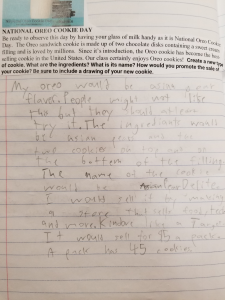
-
Effort and Creativity in March.
